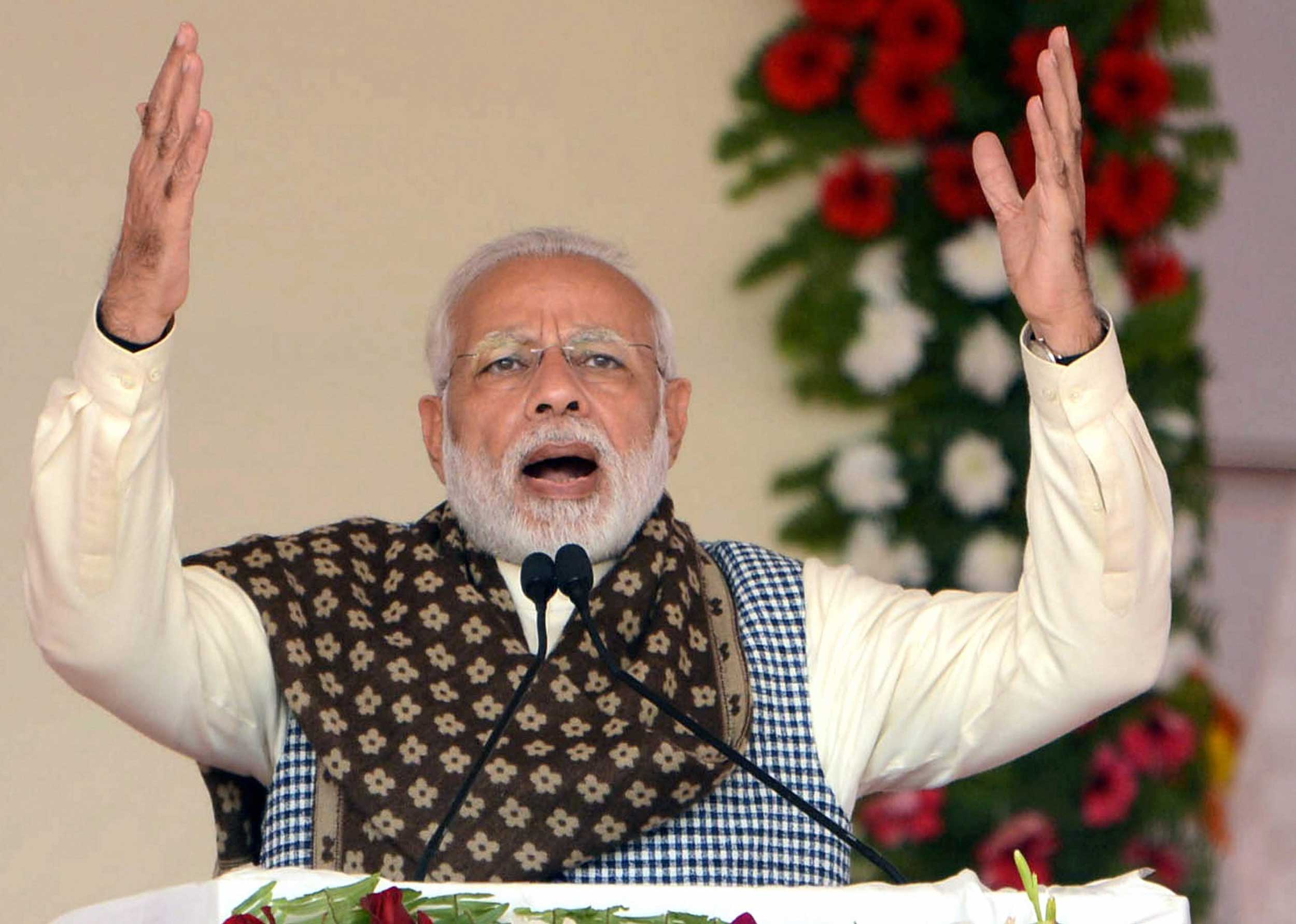Prime Minister Narendra Modi has left the nation in no doubt about his proficiency in Sanskrit. “You will be astonished to know that Sanskrit is a language that possesses the capacity for infinite word formation with two thousand verb roots, 200 suffixes and 22 prefixes,” Modi had enlightened the country in his Mann ki Baat address on August 26, this year.
The spellbound listeners will now be puzzled to learn that a group of Sanskrit teachers has been unable to get their message across to the Prime Minister who swears by the ancient language.
As he braces for another night in the open in Delhi’s cold, Sanskrit teacher Harishankar Pandey says the Modi government talked much about Sanskrit but did nothing.
The 40-year-old teacher is a faculty member on contract on the Jammu campus of the Rashtriya Sanskrit Sansthan (RSkS), a central government-funded deemed university promoting Sanskrit education in India.
Pandey is among 200 contract teachers who have mounted a protest in front of the RSkS headquarters in the national capital to demand the regularisaton of their jobs.
“The Modi government is using Sanskrit for votes. It does not listen to the voice of the Sanskrit teachers who had to come to streets. We have given a memorandum to (HRD minister) Prakash Javadekar and (home minister) Rajnath Singh. But nothing has happened,” Pandey said.
Pandey gets Rs 41,000 a month as a contract teacher while his counterparts on regular posts get over Rs 1 lakh. Around 250 teachers are on contract or serve as guest faculty on 12 campuses of RSkS across the country.
After the Modi government came to power, it asked public institutions and schools to celebrate “Sanskrit Week” in August second week. In the Mann ki Baat address, Modi had referred to the Sanskrit week.
The HRD ministry had set up a committee to suggest a long-term vision to develop Sanskrit. The report has been submitted to the ministry.
However, the protesting teachers said their remuneration had not been revised even once by the Modi government. The contract teachers were appointed in 2006 and given Rs 8,000 per month. The UPA government revised the remuneration thrice between 2006 and 2012, taking it to Rs 41000.
Dinesh Yadav, who was teaching at JRR Sanskrit University in Jaipur, decided to join the RSkS in July 2014 on the hope of better career prospects at a centrally funded institution championing a cause close to the Prime Minister’s heart.
“I feel disappointed. There is no leave, no provident fund and the monthly remuneration is too low. I find it difficult to support my family. On the 20th of every month, I start borrowing. We will not leave this place unless our service is regularised,” Yadav said.
The Puri campus of the RSkS has maximum 40 contract teachers. Bijayalaxmi Mohapatra, who has come from the Odisha town, said all the contract teachers do similar work as the regular teachers. All of them have cleared National Eligibility Test conducted University Grants Commission. Most of them have cleared PhD.
“All the contract teachers well qualified. The government and RSkS must regularise their services,” Mohapatra said.
RSkS vice-chancellor P.N. Shastri said that regularisation of contract teachers was not within the jurisdiction of the institution.
“The government has to create new posts. According to UGC rules, the posts will be advertised and filled through selection. I have received their representation. I have set up a committee to examine their representation. We will discuss at our board and write to the government to create new posts,” Shastri said.
He did not wish to comment on the criticism of the Modi government.










